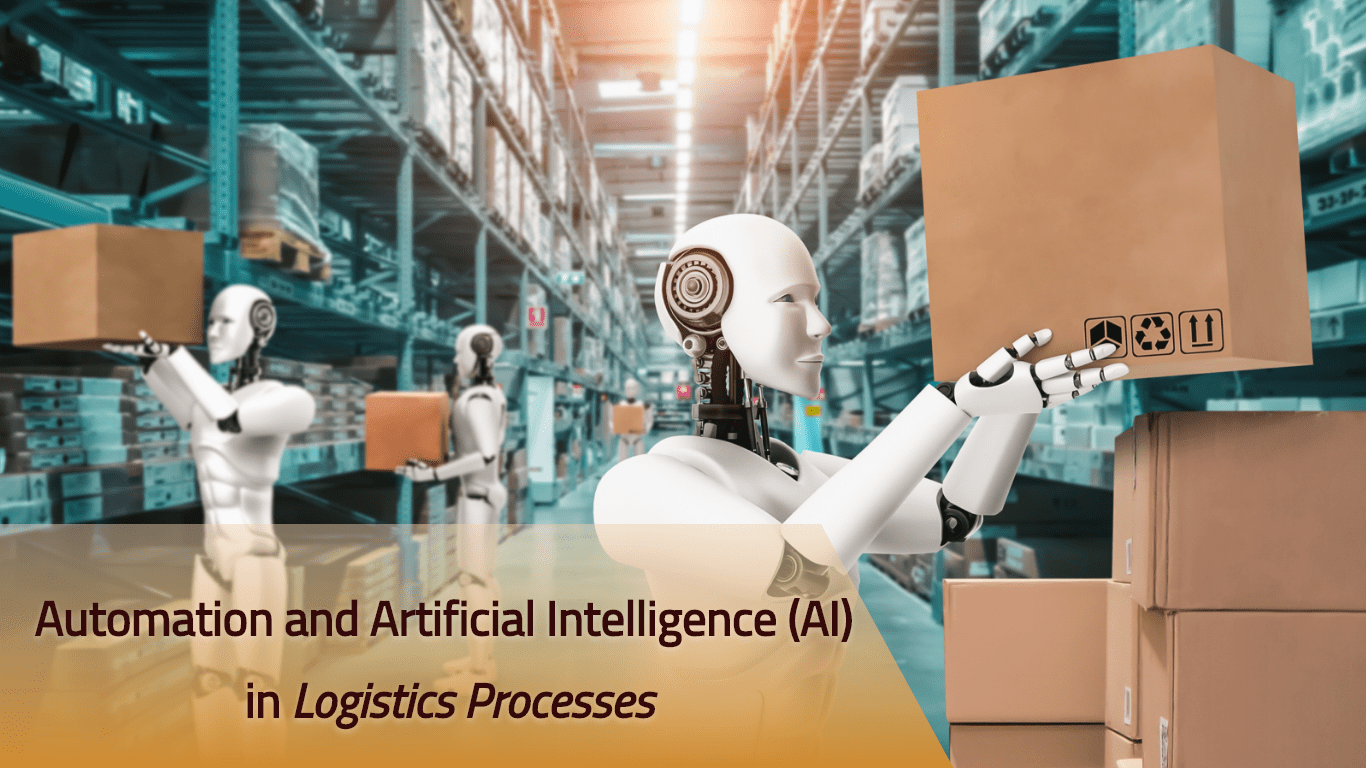Automation and Artificial Intelligence (AI) in Logistics Processes

Supply chain and logistics using AI-based solutions is the process whereby intelligent people may carry out problem-solving tasks. Without any manual input, this automated process of smart industry manufacturing powered by the Industrial Internet of Things can operate the entire supply chain. Businesses that integrate AI into their supply chains want to increase Instrumented data coming from machines and from IoT devices. With the aid of data analytics and modelling, intelligent assumptions will be more accurate and competent. Broad connectivity for better decision-making through interconnection When there are vast volumes of data that may be used for forecasting, identifying inefficiencies, and fostering innovation, supply chain data analysis aids in workflow optimization.
Businesses from all industries are implementing cutting-edge technology and artificial intelligence (AI) computing methods like deep learning, machine learning, and natural language processing. Without our knowledge, these technologies are progressively becoming a prominent role in our daily activities. In several industries, including supply chains and logistics, AI has emerged as the most crucial technology.
The transport, logistics, and supply chain sectors have experienced a digital change that has created new opportunities for effective operation and schedule management and end-to-end visibility. Operations involving the logistics and supply chain must deal with a vast volume of data. AI computing methods make it simple to conduct comprehensive and effective analyses of large amounts of data. After that, it effortlessly performs complex functions, creates requested information, and activates functions.
Automation and Artificial Intelligence (AI) are transforming logistics processes in a number of ways, improving efficiency, reducing costs, and enhancing overall performance. Here are some examples of how automation and AI are being used in logistics:
1. Warehouse Automation :
Robotics and automated material handling systems are being used to streamline warehouse operations, increase productivity, and reduce human error. AI-powered systems can optimise warehouse layouts and inventory placement, track inventory levels, and predict future demand.
Transportation Optimization: AI-powered algorithms are being used to optimise transportation routes, reduce empty miles, and increase fuel efficiency. This not only saves costs but also reduces carbon emissions and contributes to sustainability.
2. Predictive Maintenance :
AI-powered predictive maintenance systems can monitor equipment and vehicles in real-time, detecting issues before they become critical, and reducing downtime. This helps to increase the lifespan of assets and reduce maintenance costs.
3. Demand Forecasting :
AI-powered demand forecasting systems can analyse historical data, customer trends, and market conditions to accurately predict future demand. This can help companies optimise inventory levels and reduce excess stock, while also improving customer service.
4. Last-Mile Delivery :
Delivery robots, drones, and autonomous vehicles are being tested for last-mile delivery, reducing delivery times and costs while also improving the overall customer experience.
Inventory management: AI and automation can help optimise inventory levels and reduce waste. By analysing sales data and other factors such as seasonality and promotions, AI-powered systems can predict demand and automatically adjust inventory levels accordingly.
5. Customer Service :
Chatbots and other AI-powered tools can help provide customer service by answering queries, tracking deliveries, and providing real-time updates. This helps improve customer satisfaction and reduce the workload for customer service teams.
Challenges in Implement Automation and AI in Logistics Processes
Implementing automation and AI in logistics processes can offer many benefits, such as increased efficiency, reduced costs, and improved accuracy. However, there are also several challenges that organisations may encounter when attempting to implement these technologies. Some of the key challenges include:
High Initial Costs :
Implementing automation and AI technologies often requires a significant investment, which can be a major barrier for some companies. The cost of hardware, software, and implementation can be expensive, and it may take time for the organisation to see a return on its investment.
Resistance to Change: :
Implementing new technologies can be met with resistance from employees who are used to doing things a certain way. This can be especially true in the logistics industry, where many processes have been done manually for years. Organisations may need to invest time and resources into training employees on new processes and technologies to ensure successful adoption.
Integration with Existing Systems :
Implementing automation and AI technologies often requires integration with existing systems, which can be a complex process. It is important to ensure that the new technologies can seamlessly integrate with existing systems, and that data is transferred accurately and securely.
Data Quality :
The effectiveness of automation and AI technologies depends heavily on the quality of the data being used. If data is inaccurate or incomplete, it can negatively impact the performance of the technologies. Organisations need to ensure that data is clean, up-to-date, and stored in a format that can be easily used by the technologies.
Cybersecurity Risks :
As with any new technology, automation and AI bring with them the risk of cybersecurity threats. Organisations need to take steps to ensure that their systems are secure and that data is protected from unauthorised access.
Legal and Regulatory Issues :
As automation and AI technologies become more prevalent, there may be legal and regulatory issues that need to be addressed. For example, regulations around data privacy may impact how organisations can use data to inform their logistics processes.
Conclusion :
The Logix platform helps you automate business processes, AI and automation are revolutionising the logistics sector. It allows your business to increase efficiency, improve visibility, and reduce costs. While implementation can be challenging, the benefits are significant, and companies that embrace the technologies are sure to gain a competitive advantage. As the logistics industry continues to evolve, we can expect to see even more innovative uses of automation.
Click here obtain your 100% business automation.

